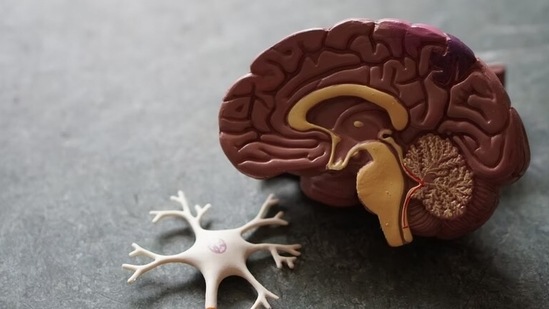World Alzheimer's Day: How the disease progresses over seven stages, a doctor explains
World Alzheimer's Day: Starting with mild memory loss, the symptoms of Alzheimer's may worsen gradually with the person affected by it losing the ability to speak and walk at later stages.
World Alzheimer's Day: Alzheimer’s Disease (AD) is a neurodegenerative disease that is characterised by worsening forgetfulness, getting lost in familiar places and difficulty in multitasking and problem-solving. A person may also behave differently than before, face concentration troubles and withdraw himself/herself socially.

The disease progresses over time and at later stages, a person may lose the ability to speak and walk. While the onset of Alzheimer's disease is not before the age of 65 or so, in some cases it may begin at an early age also.
Alzheimer's disease is noticed when a person starts misplacing things, forgetting about recent events, conversations and common places. A person close to the patient may start noticing these changes.
ALSO READ | World Alzheimer's Day: Pay attention to these early signs of the disease
Dr Rajesh Benny, Consultant Neurologist, Fortis Hospital Mulund elaborates on how the disease progresses over seven stages.
"The core feature of AD is impairment of recent memory. As the disease advances, various other cognitive domains are involved. The disease progresses over seven stages; however, there is an overlap between these," says Dr Benny.
Stages of Alzheimer's disease explained by Dr Benny:
Stage 1 (No clinical impairment): Like other neurodegenerative diseases, this stage can precede the memory loss by many years where the affected individual is clinically okay without any memory abnormality.
Stage 2 (Very mild cognitive decline): This mimics the forgetfulness associated with normal ageing, where an individual misplaces objects and can eventually find them after a period of search. Most of the patient’s relatives are not even aware of this mild forgetfulness.
Stage 3 (Mild cognitive decline): Recent memory worsens, which is now apparent to the relatives. They suffer in daily functioning such as bank work, money issues, etc. and maybe confused occasionally. They can, however, still be independent in all their daily activities.
Stage 4 (Moderate cognitive decline): Memory worsens further with difficulty doing tasks that need multitasking. They start losing their way around unfamiliar places and become socially withdrawn. Denial of their disease and becoming progressively dependent for even simple tasks on their caregiver is expected at this stage.
Stage 5 (Moderately severe cognitive decline): They may even forget their current surroundings, home address, telephone number and need assistance for simple tasks like dressing. Losing way in familiar surroundings also happens.
Stage 6 (Severe cognitive decline): There is worsening of behaviour with irritability and hallucinations. They experience memory loss even for past events and start losing control of their bladder/ bowel functions.
Stage 7 (Very severe cognitive decline): During this stage, most of them lose the ability to speak, communicate and even walk around or move by now.
Diagnosis of AD
"The diagnosis of AD is clinical and ruling out other treatable entities which can cause memory abnormality (Vitamin B12 deficiency, Hypothyroidism and certain infections). In most patients, an MRI of the brain is done to rule out other causes of Dementia (like brain strokes etc.) and to demonstrate atrophy of the structures involved in memory," says Dr Benny.
While there is no treatment for reversing or stopping the progression of AD, but drugs are available which can symptomatically improve cognition. Apart from medication, one should quit smoking or alcohol, solve puzzles and board games, socialize, get adequate sleep, do physical activity and consume a balanced diet to slow down progression.
Catch your daily dose of Fashion, Health, Festivals, Travel, Relationship, Recipe and all the other Latest Lifestyle News on Hindustan Times Website and APPs.



